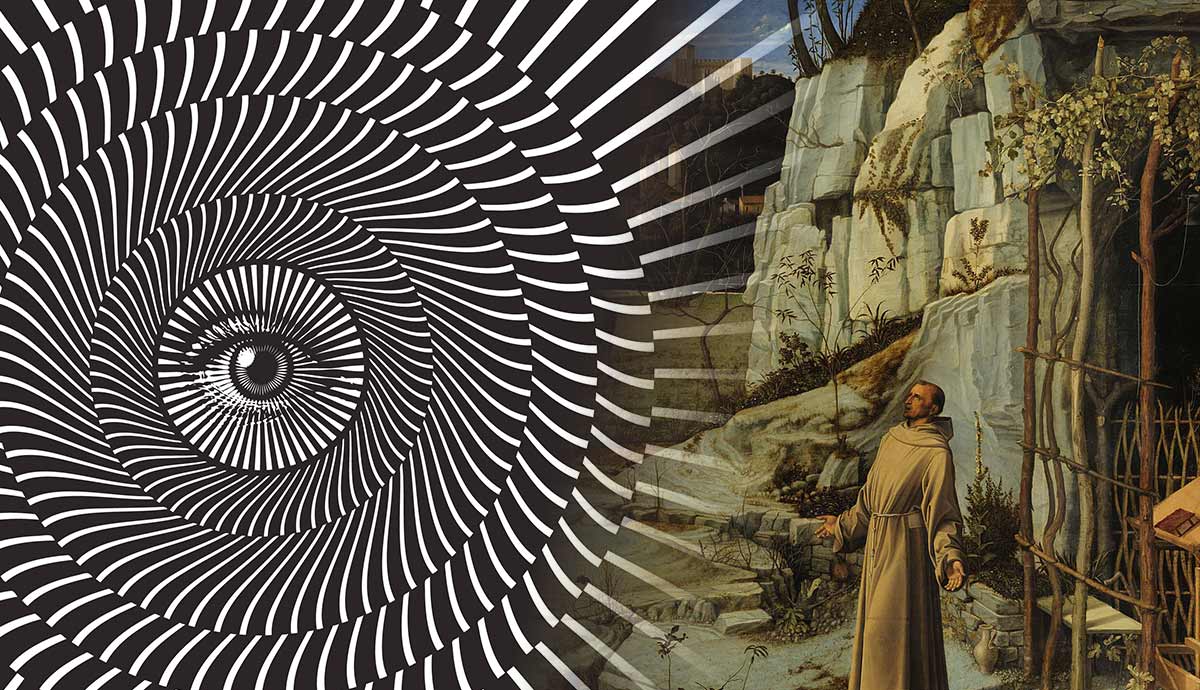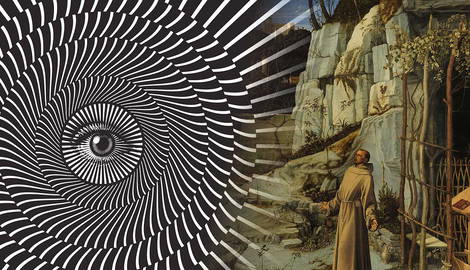
Do you ever stop to think about whether everything in your life has already been decided or if you must choose what happens next? This question of how much control we have over our lives has fascinated everyone, from philosophers to scientists, for centuries. Here, we’ll explore the philosophical ideas behind the concept of destiny.
Aristotle’s View on Destiny

Aristotle’s perspective on destiny is closely linked to his ideas about teleology, causality, and purpose. According to Aristotle, everything in nature has a specific purpose or goal (a concept known as teleology). To understand something fully, he thought you needed to know its “final cause“: the ultimate reason for its existence.
In Nicomachean Ethics, Aristotle examines the idea that humans also have a purpose—just like everything else does. He argues that eudaimonia (often translated as “flourishing” or “happiness”) is the highest good for humans and that this comes from both fulfilling one’s potential and exercising virtue. So, according to Aristotle, living with reason and virtue is what human beings are meant to do: it is their destiny.
Teleology plays an important role in Aristotle’s philosophy. He believes that everything in nature has an inherent purpose. For example, an acorn is destined to become an oak tree. This innate orderliness implies a sort of destiny where each thing strives toward what it’s supposed to be.
A practical example of this idea can be found in Nicomachean Ethics: live well means behaving virtuously and acting in line with reason. If you’re courageous, for instance, you’ll act bravely because that’s what brave people do. It’s who they are meant to be.
According to Aristotle, destiny isn’t an external thing imposing itself upon us like some pre-set plan. Instead, there is something inside each acorn or person (an inner aim) that has its own way of unfolding, developing within the regular pattern of things.
By understanding this purpose (which comes from within themselves yet can also be observed all around them), individuals—as well as objects—can help steer themselves toward their destinies, fulfilling their true natures and potentials.
Stoic Philosophy and Destiny

Stoicism, the philosophy championed by figures such as Epictetus and Marcus Aurelius, provides an interesting perspective on destiny. According to Stoicism, the universe is governed by a rational principle called the Logos—a divine reason that brings order to everything. This belief is fundamental to Stoic thought because it suggests that everything happens for a reason and that there’s a natural law behind it all.
One aspect of Stoicism is accepting your destiny. Epictetus put this well when he said, “It’s not what happens to you, but how you react to it that matters.” Stoics think we can’t control what happens on the outside—only how we respond inside. We can find peace and wisdom by going along with nature’s rational order (which they believe we’re part of).
Marcus Aurelius touches on this acceptance of fate in his book Meditations: “Accept the things to which fate binds you, and love the people with whom fate brings you together, but do so with all your heart.” Here, he seems to say that Stoics should embrace destiny willingly because it’s predetermined—though they still think humans have free will, too.
According to Stoicism, destiny isn’t a fixed script. Rather, it’s the course set by nature. By comprehending and embracing this path, we harmonize ourselves with the Logos—we experience peace and live well.
The Stoic sage doesn’t gain freedom by fighting against destiny but by accepting it through reason and virtue, thereby living in harmony with the universe.
Augustine’s Theological Perspective

Saint Augustine, a theologian, offers a nuanced interpretation of destiny in his divine providence and predestination teachings. Influenced by his conversion to Christianity, Augustine attempts to harmonize classical philosophy with Christian doctrine throughout his writings.
Augustine asserts that divine providence—wherein God governs all events according to His will—is closely connected to predestination. It is the idea that God knows beforehand all things that will happen and the ultimate fates of people.
In The City of God, Augustine contends that history unfolds as God intends and that this unfolding is ultimately both good and just, even if humans cannot always perceive it so.
At the same time, Augustine struggles with how divine predestination can be compatible with human freedom. He suggests that although God’s plan is sovereign, individuals can choose their actions.
Augustine provides examples from his own life in Confessions. Looking back, he recalls occasions when he made choices—and mistakes—although simultaneously feeling convinced that God was guiding him. He also discusses his move from a sinful existence into Christianity as something he felt destined for—not only because he opted for it but because everything forms part of God’s plan.
This means that Augustine believes there must be more going on than people making choices freely. Instead, these decisions fit within a much larger picture already painted by divinity itself.
It is something he wants readers of his works to grasp as well. Having faith in God’s overall plan for everything while still understanding humans need to decide things themselves–and these things should always be rooted in what is good according to divine standards.
Nietzsche’s Rejection of Destiny

Friedrich Nietzsche, a thought-provoking philosopher from the 19th century, challenged conventional notions about fate and determinism in a way that may be considered extreme. Nietzsche’s philosophy criticizes all forms of predestination and suggests that individuals forge their own paths.
Nietzsche takes issue with determinism—the belief that everything that happens is unavoidable because it has already been decided—because it undermines human freedom and creativity.
Instead, he introduces the idea of the “will to power,” which suggests that what drives life is wanting more power and control (though not necessarily over others). It’s about self-improvement and making yourself into something new: surpassing yourself or transcending who you thought you were before.
For Nietzsche, there isn’t a script already written for how things will turn out (destiny). Rather, each individual “writes” their destiny through what they do and their choices.
We can see Nietzsche’s disdain for the idea of fate in his concept of eternal recurrence, which he delves into in Thus Spoke Zarathustra. Here, Nietzsche invites readers to imagine living their lives over and over again for all eternity.
By posing this thought experiment, he wants to encourage people to live authentically and embrace their choices as if they will happen an infinite number of times more. The goal isn’t to resign oneself to some predetermined destiny but rather to craft a life so satisfying that one would willingly repeat it forever.
Far from advocating for belief in an immutable fate, Nietzsche’s philosophy emboldens individuals to reject passively accepting what may come their way. Instead, he argues for fashioning one’s own future through ceaseless personal growth and reaffirmation of self—a constant exercise in creativity and self-discovery.
Sartre and Existentialism

Jean-Paul Sartre presents a fascinating perspective on the concepts of freedom and destiny in existentialist philosophy. According to Sartre, considered one of the greatest thinkers in this field, people are completely free—and there is no such thing as fate. Instead, individuals have total freedom to give their lives meaning however they choose.
In his influential work Being and Nothingness, Sartre suggests that existence comes before essence. In other words, we are not born with any built-in purpose. Rather, each individual must define themselves by what they do and their choices.
Sartre expresses this view through a famous line from his works: “Man is condemned to be free.” This means we bear both the burden and excitement of shaping our own destinies; there’s no external plan for us at all.
In “Existentialism is a Humanism,” Sartre addresses and refutes the idea that existentialism promotes despair. Rather, he argues, it is an optimistic philosophy precisely because of the absence of preordained destiny—it means we have infinite freedom.
One way this freedom manifests itself is in humans’ ability to make their own essence. We do so through our choices—a concept Sartre called “existence precedes essence.” To illustrate this point, he uses the example of how one becomes an artist.
Sartre’s ideas demand that we embrace both this unfettered liberty and its attendant duty. By living authentically and making decisions with full awareness (rather than by autopilot or because society dictates), we alone determine our own meaning and what happens next—a continuous act of invention.
In recognizing this fact, one is said to be living “in good faith.” Once we accept it, it can be an enormous weight off your shoulders.
Eastern Philosophical Perspectives on Destiny

Eastern philosophies, such as Hinduism, Buddhism, and Taoism, provide detailed views on destiny that often stress the importance of balance, harmony, and cycles of action.
Within Hinduism, two key concepts are karma and dharma. Karma can be understood as a law of cause and effect: every action has an equal reaction. What you do in past lives shapes your current situation, implying a kind of destiny formed by previous deeds. Dharma, however, is different: its moral duty is aligned with your role in life. By fulfilling your dharma, you help maintain cosmic order—and progress spiritually as well.
Buddhism also believes in karma but adds that there is a cycle of rebirth and that the ultimate goal is to achieve Nirvana. The Buddha taught that our actions create our future experiences. However, through living mindfully and ethically, one can break free from suffering and the cycle of rebirth.
Taoism, founded by Laozi, says that we should live in harmony with the Tao. This religion teaches that behind everything in the universe, there is a fundamental principle called the Tao (sometimes spelled Dao). The natural order of things—their way—is called their dao. One should embrace simplicity, spontaneity, and compassion to align oneself with this idea.
These Eastern perspectives contrast with Western ideas about predestined fate. Instead, they present a more fluid conception in which one’s fortune is an ongoing development influenced by one’s deeds and how well one adjusts oneself to principles guiding the cosmos.
So, Is There a Destiny?

Is destiny real? Do we each have a destiny? These questions ask whether there is a kind of grand plan to life in which everything happens for a reason, and there are never alternative outcomes possible.
Or perhaps we can each determine what will happen in our own lives—that is, we have free will. We can choose our own paths and make our own luck: we create our destinies.
Maybe both these ideas contain some truth. There could be an overall design to existence, but one so huge that it also allows for individual freedom within it.
Even if there isn’t exactly a plan or plans being constantly worked out by some mega-intelligence, it could still be the case that things do tend to work out as though they were planned or that human beings’ actions help impose order on an unordered world. We don’t know the answer yet!










